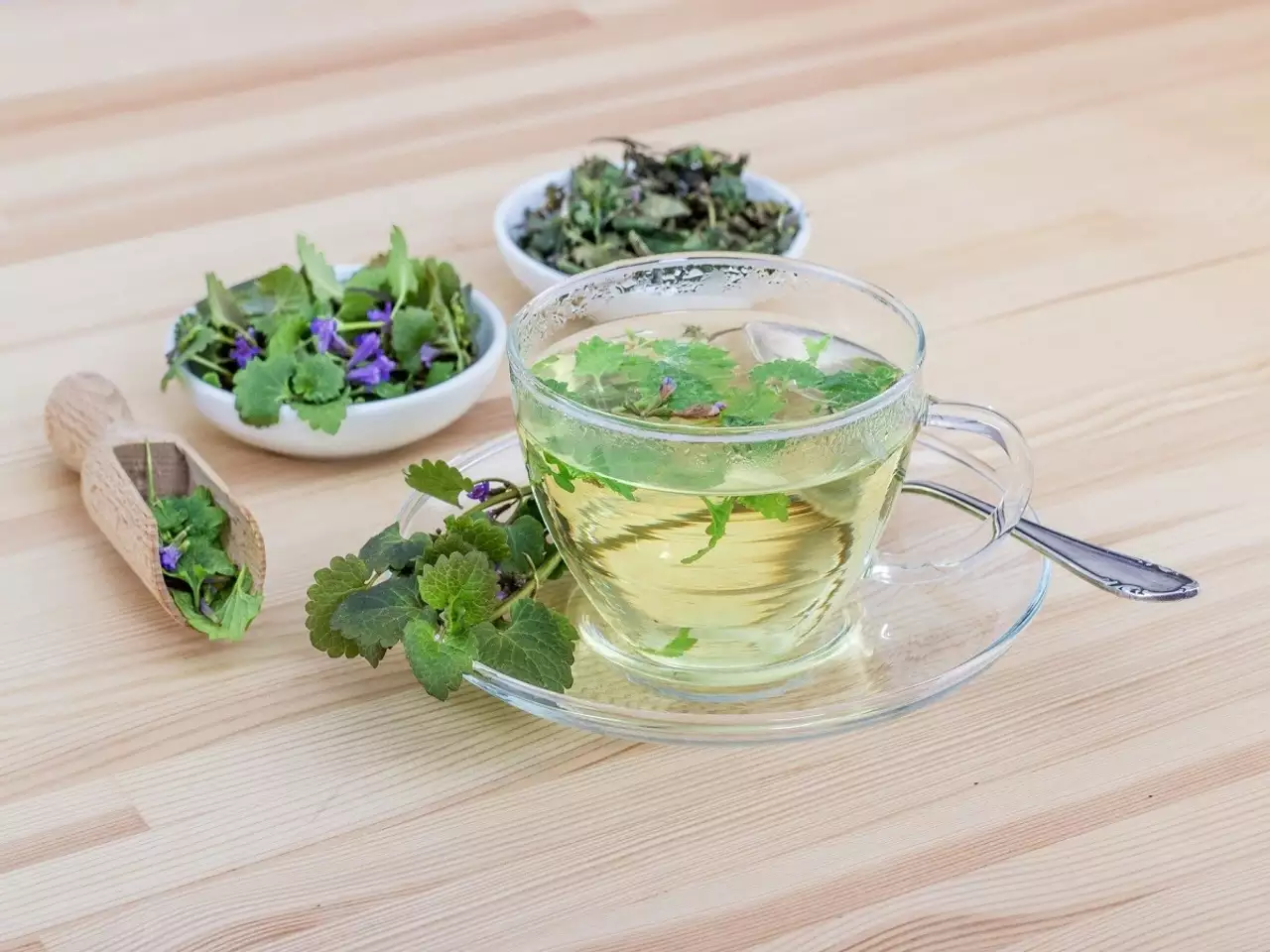5 Herbs to Induce Lactation
Breastfeeding provides optimal nutrition for babies, with breast milk containing the ideal balance of nutrients to support growth and development. However, some mothers can struggle with low milk supply, making it difficult to fully breastfeed their child. Using herbs to induce lactation can help boost milk production in a safe and natural way.
Key Points:
- Herbs like fenugreek, blessed thistle, and fennel contain phytoestrogens that help stimulate breast milk production.
- Galactagogues work by supporting prolactin levels and breast milk secretion.
- Herbs provide additional nutrients like vitamins, minerals, and antioxidants that promote lactation.
- When used properly, herbs can safely boost milk supply without the need for medications.
- It’s important to consult a doctor or lactation specialist before using herbs, especially if you have any medical conditions.
What is Lactation?
Lactation refers to the process of producing breast milk. It begins during pregnancy as the breasts prepare for breastfeeding. Several hormones, including prolactin, estrogen, and progesterone, regulate the development of the breast tissue and milk ducts.
After childbirth, the drop in progesterone leads to increased prolactin which stimulates milk production. The mammary glands in the breast secrete milk in response to prolactin and stimulation from nursing.
What are Herbs to Induce Lactation?
Herbs to induce lactation, also called galactagogues, are herbs that can help increase breast milk production. Many cultures have traditional herbs used to promote lactation, and modern research has confirmed the galactagogue effects of many herbs.
Herbs like fenugreek, blessed thistle, and fennel contain phytoestrogens that mimic the action of the hormone estrogen. Estrogen levels rise during pregnancy and trigger changes in the breasts that prepare them for breastfeeding. Phytoestrogens from herbs can help stimulate milk duct development and boost milk supply.
Other herbs act on prolactin levels and breast tissue to enhance milk secretion. Herbs also provide nutrients like vitamins, minerals, and antioxidants that support breast health and lactation.
Benefits and Risks of Herbs to Induce Lactation
Using herbs can help boost milk production in a safe, natural way without the need for medications or invasive procedures. Herbs are generally well-tolerated with few side effects when used appropriately.
However, herbs have the potential to cause side effects or reactions in some people. It’s important to consult a doctor or lactation consultant before using herbs, especially if you have any medical conditions or are taking any medications.
Pregnant and breastfeeding women should use herbs cautiously as some can affect hormones. Dosage is also key – herbs are potent even in small amounts so it’s essential to use them as directed.
How to Use Herbs to Induce Lactation Safely
If you plan to use herbs to increase milk supply, there are some key guidelines to follow:
- Consult your doctor and/or lactation consultant first
- Choose high-quality herbs from reputable sources
- Follow dosage guidelines carefully
- Watch for possible side effects and interactions
- Introduce herbs gradually and monitor their effects
- Use herbs as a complement to a healthy lactation diet and breastfeeding routine
With the appropriate precautions, herbs offer a safe way to help boost breast milk production. However, herbs should never replace medical advice from your doctor or other healthcare provider.
Common Herbs Used to Induce Lactation
Many herbs have been shown to help increase breast milk supply. Some of the most popular and effective options include:
Fenugreek
Fenugreek is one of the most widely used galactagogues. The seeds contain diosgenin, a phytoestrogen that enhances milk flow. Fenugreek also has antimicrobial and anti-inflammatory properties to support breast health.
Research indicates fenugreek can increase milk volume by up to 103%. The recommended dosage is 2-3 capsules (580-610 mg) taken 2-3 times daily. Fenugreek can cause minor stomach upset in some people.
Blessed Thistle
Blessed thistle acts on prolactin and also provides essential nutrients like calcium and B-vitamins. Some studies show it may boost milk production by up to 40%.
The typical dosage is 3-5 grams per day taken as capsules, tincture, or tea. Blessed thistle has a bitter taste, so many people prefer capsules.
Shatavari
Shatavari is a traditional Ayurvedic herb used to support female reproductive health. It contains phytoestrogens and exerts positive effects on prolactin.
Doses of 3-6 grams per day taken as powder, tablets, or liquid extract are common. Shatavari enhances the overall quality and nutrient profile of breast milk.
Red Raspberry Leaf
Red raspberry leaf contains vitamins and minerals that promote breast health and milk production. It has antioxidant, anti-inflammatory, and hormonal balancing effects.
It can be consumed as a tea or in capsule form at suggested dosages of 3-6 grams per day. There is little risk of side effects with red raspberry leaf.
Alfalfa
Alfalfa is rich in phytoestrogens along with vitamins K, C, and D, calcium, and chlorophyll. It enhances prolactin response and milk production.
Doses of up to 4-6 grams per day are recommended, taken as tablets or incorporated into foods. Alfalfa may cause bleeding risks in some people.
Brewer’s Yeast
Brewer’s yeast is a source of B-vitamins, protein, iron, and selenium – all beneficial for lactation. It provides the precursor for lactose synthesis in the breasts.
Doses of around 5-10 grams per day are common. Brewer’s yeast has a bitter taste so capsules are easier to take. There is potential for allergic reaction.
How to Choose the Right Herbs
When selecting herbs to increase milk supply, here are some factors to consider:
- Safety – Avoid herbs with known hormonal effects during pregnancy. Select herbs that are safe for babies when breastfeeding.
- Effectiveness – Prioritize herbs with evidence and traditional use for enhancing lactation. Standardized preparations ensure potency.
- Convenience – Dried herbs, powders, capsules, tablets, or tinctures allow easy use. Teas or foods require more preparation.
- Taste – The flavor of herbs impacts the enjoyment of taking them. Capsules avoid unpleasant tastes.
- Quality – Only use high-quality organic herbs from reputable suppliers to ensure purity and potency.
- Sensitivities – Watch for possible allergic reactions or sensitivities when trying new herbs.
Discuss your options with a lactation consultant or herbalist to choose the most suitable herbs for your needs. You can also combine several galactagogues for additive effects.
How to Prepare Herbs to Induce Lactation
Herbs can be prepared in different ways:
Teas – Teas allow easy use of leaves, flowers, seeds, or roots. Steep 1-2 teaspoons of dried herb per cup of hot water for 15-20 minutes. Strain and drink 2-3 cups daily.
Capsules – Taking herbs in capsule form avoids any unpleasant taste. Follow dosage on supplement labels. Always choose high-quality encapsulated herbs.
Tinctures – Tinctures are concentrated liquid extracts that provide a set dose per dropper. Use dropper to place tincture directly under tongue or mixed into water.
Foods – Herbs like fenugreek, fennel, and brewer’s yeast can be added to foods. Sprinkle on oatmeal, yogurt, soups, or salads.
Powder – Herbal powders can be stirred into water, juice, or smoothies to boost lactation. Measure precise amounts using a measuring spoon for accuracy.
No matter the preparation method, be sure to follow dosage guidelines carefully and watch for possible side effects. Keep track of what works best for you.
Recipes for Herbal Preparations to Induce Lactation
Making your own herbal remedies can help save money and allow you to control the ingredients. Here are some recipes to try:
Lactation Tea
| Ingredients | Amount |
|---|---|
| Fenugreek seeds | 1 teaspoon |
| Fennel seeds | 1 teaspoon |
| Coriander seeds | 1 teaspoon |
| Red raspberry leaf | 1 teaspoon |
Steep the herbs in boiling water for 15-20 minutes. Strain and drink 2-3 cups daily.
Lactation Tincture
| Ingredients | Amount |
|---|---|
| Blessed thistle leaves and flowers | 2 ounces |
| Fennel seeds | 1 ounce |
| Fenugreek seeds | 1 ounce |
| Vodka or vegetable glycerine (for extraction) | Enough to cover herbs |
Combine herbs and liquid in a mason jar, let steep for 4-6 weeks, then strain. Take 30-90 drops (1-3 mL) mixed into water or juice 2-3 times daily.
Lactation Truffles
| Ingredients | Amount |
|---|---|
| Coconut oil | 1/4 cup |
| Cacao or cocoa powder | 3 tablespoons |
| Shatavari powder | 1 tablespoon |
| Maca powder | 1 teaspoon |
| Vanilla | 1/2 teaspoon |
Melt coconut oil and mix in remaining ingredients. Pour into molds or refrigerate until firm. Enjoy 1-2 truffles daily.
Lactation Smoothie
| Ingredients | Amount |
|---|---|
| Spinach | 1 cup |
| Banana | 1 banana |
| Milk (dairy or non-dairy) | 1 cup |
| Brewer’s yeast | 1-2 teaspoons |
Blend all ingredients until smooth. For extra nutrition, add nuts, seeds, nut butter, oats, or avocado.
Common Herbs Used to Induce Lactation
Many herbs have been shown to help increase breast milk supply. Some of the most popular and effective options include:
Fenugreek
Fenugreek is one of the most widely used galactagogues. The seeds contain diosgenin, a phytoestrogen that enhances milk flow. Fenugreek also has antimicrobial and anti-inflammatory properties to support breast health.
Research indicates fenugreek can increase milk volume by up to 103%. The recommended dosage is 2-3 capsules (580-610 mg) taken 2-3 times daily. Fenugreek can cause minor stomach upset in some people.
Blessed Thistle
Blessed thistle acts on prolactin and also provides essential nutrients like calcium and B-vitamins. Some studies show it may boost milk production by up to 40%.
The typical dosage is 3-5 grams per day taken as capsules, tincture, or tea. Blessed thistle has a bitter taste, so many people prefer capsules.
Shatavari
Shatavari is a traditional Ayurvedic herb used to support female reproductive health. It contains phytoestrogens and exerts positive effects on prolactin.
Doses of 3-6 grams per day taken as powder, tablets, or liquid extract are common. Shatavari enhances the overall quality and nutrient profile of breast milk.
Red Raspberry Leaf
Red raspberry leaf contains vitamins and minerals that promote breast health and milk production. It has antioxidant, anti-inflammatory, and hormonal balancing effects.
It can be consumed as a tea or in capsule form at suggested dosages of 3-6 grams per day. There is little risk of side effects with red raspberry leaf.
Alfalfa
Alfalfa is rich in phytoestrogens along with vitamins K, C, and D, calcium, and chlorophyll. It enhances prolactin response and milk production.
Doses of up to 4-6 grams per day are recommended, taken as tablets or incorporated into foods. Alfalfa may cause bleeding risks in some people.
Brewer’s Yeast
Brewer’s yeast is a source of B-vitamins, protein, iron, and selenium – all beneficial for lactation. It provides the precursor for lactose synthesis in the breasts.
Doses of around 5-10 grams per day are common. Brewer’s yeast has a bitter taste so capsules are easier to take. There is potential for allergic reaction.
How to Choose the Right Herbs
When selecting herbs to increase milk supply, here are some factors to consider:
- Safety – Avoid herbs with known hormonal effects during pregnancy. Select herbs that are safe for babies when breastfeeding.
- Effectiveness – Prioritize herbs with evidence and traditional use for enhancing lactation. Standardized preparations ensure potency.
- Convenience – Dried herbs, powders, capsules, tablets, or tinctures allow easy use. Teas or foods require more preparation.
- Taste – The flavor of herbs impacts the enjoyment of taking them. Capsules avoid unpleasant tastes.
- Quality – Only use high-quality organic herbs from reputable suppliers to ensure purity and potency.
- Sensitivities – Watch for possible allergic reactions or sensitivities when trying new herbs.
Discuss your options with a lactation consultant or herbalist to choose the most suitable herbs for your needs. You can also combine several galactagogues for additive effects.
How to Prepare Herbs to Induce Lactation
Herbs can be prepared in different ways:
Teas – Teas allow easy use of leaves, flowers, seeds, or roots. Steep 1-2 teaspoons of dried herb per cup of hot water for 15-20 minutes. Strain and drink 2-3 cups daily.
Capsules – Taking herbs in capsule form avoids any unpleasant taste. Follow dosage on supplement labels. Always choose high-quality encapsulated herbs.
Tinctures – Tinctures are concentrated liquid extracts that provide a set dose per dropper. Use dropper to place tincture directly under tongue or mixed into water.
Foods – Herbs like fenugreek, fennel, and brewer’s yeast can be added to foods. Sprinkle on oatmeal, yogurt, soups, or salads.
Powder – Herbal powders can be stirred into water, juice, or smoothies to boost lactation. Measure precise amounts using a measuring spoon for accuracy.
No matter the preparation method, be sure to follow dosage guidelines carefully and watch for possible side effects. Keep track of what works best for you.
Recipes for Herbal Preparations to Induce Lactation
Making your own herbal remedies can help save money and allow you to control the ingredients. Here are some recipes to try:
Lactation Tea
| Ingredients | Amount |
|---|---|
| Fenugreek seeds | 1 teaspoon |
| Fennel seeds | 1 teaspoon |
| Coriander seeds | 1 teaspoon |
| Red raspberry leaf | 1 teaspoon |
Steep the herbs in boiling water for 15-20 minutes. Strain and drink 2-3 cups daily.
Lactation Tincture
| Ingredients | Amount |
|---|---|
| Blessed thistle leaves and flowers | 2 ounces |
| Fennel seeds | 1 ounce |
| Fenugreek seeds | 1 ounce |
| Vodka or vegetable glycerine (for extraction) | Enough to cover herbs |
Combine herbs and liquid in a mason jar, let steep for 4-6 weeks, then strain. Take 30-90 drops (1-3 mL) mixed into water or juice 2-3 times daily.
Lactation Truffles
| Ingredients | Amount |
|---|---|
| Coconut oil | 1/4 cup |
| Cacao or cocoa powder | 3 tablespoons |
| Shatavari powder | 1 tablespoon |
| Maca powder | 1 teaspoon |
| Vanilla | 1/2 teaspoon |
Melt coconut oil and mix in remaining ingredients. Pour into molds or refrigerate until firm. Enjoy 1-2 truffles daily.
Lactation Smoothie
| Ingredients | Amount |
|---|---|
| Spinach | 1 cup |
| Banana | 1 banana |
| Milk (dairy or non-dairy) | 1 cup |
| Brewer’s yeast | 1-2 teaspoons |
Blend all ingredients until smooth. For extra nutrition, add nuts, seeds, nut butter, oats, or avocado.
Conclusion
Herbs offer a safe, gentle way to increase breast milk production without the need for medications or other interventions. They have been used traditionally for centuries to support lactation and modern research confirms their beneficial effects.
Some of the top herbs to induce lactation include fenugreek, blessed thistle, shatavari, and fennel. When used appropriately, these galactagogues can boost milk supply by 50-100% or more.
It’s important to choose high quality supplements from reputable sources and follow dosage guidelines carefully. Consult a doctor or lactation specialist before using any new herbs. Monitor for possible side effects and interactions.
Herbs work best as part of a multifaceted approach to promoting lactation. Eat a nutrient-rich diet, stay hydrated, breastfeed on demand, use proper nursing techniques, and get adequate rest. Herbs complement these healthy habits to give your milk supply an added boost.
While inducing lactation with herbs takes dedication and consistency, the effort pays off with the ability to provide the unique nutritional benefits of breast milk for your baby. If you experience any challenges with breastfeeding, seek help early from a lactation consultant or support group.
DISCLAIMER
The information provided on this website is for informational purposes only. The content is not intended to be a substitute for professional medical advice, diagnosis or treatment. Always seek the advice of your physician or other qualified health provider with any questions you may have regarding a medical condition. Never disregard professional medical advice or delay seeking it because of something you have read on this website. The remedies and suggestions in the articles are based on traditional or common home remedies passed down from earlier generations and are not intended to supersede or replace medical advice from a professional healthcare provider. The herbals and remedies may help for your issued, but we should not replace your regular doctor consultations or behavioral concerning your eventual allergies or intolerances.
Frequently Asked Questions
How long does it take for herbs to increase milk supply?
Most women notice an increase in milk production within 3-7 days of starting herbs. Maximum effects are usually seen in 2-4 weeks with consistent use.
Are herbs to induce lactation safe while pregnant?
Some herbs like fenugreek, fennel, and red raspberry leaf can be safely used in pregnancy. However, herbs that stimulate hormones require caution and should only be used under medical supervision during pregnancy and breastfeeding.
Can I take herbs to induce lactation while exclusively pumping?
Yes, herbs that enhance prolactin and milk production can benefit mothers who are exclusively pumping. Follow the same dosage guidelines as for breastfeeding mothers.
How long should I continue taking the herbs?
You can continue taking lactation herbs as needed throughout the duration of breastfeeding. Once supply is well-established, you may be able to reduce frequency or dosage.
What if I don’t see results from the herbs?
Herbal responsiveness varies individually. Adjust dosage, switch herbs, or combine multiple galactagogues. Rule out other obstacles like poor latch or infrequent nursing. Seek help from a lactation consultant if supply remains low.




